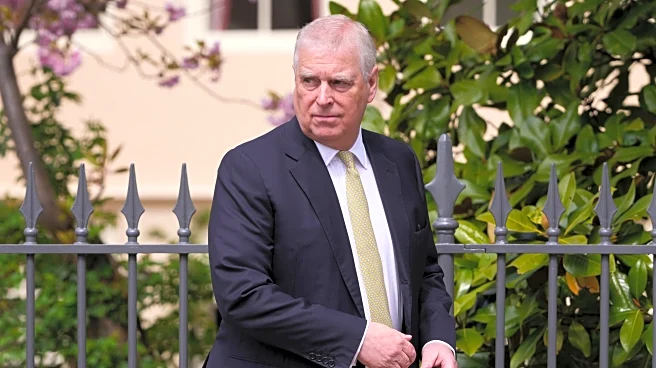Rapid Read • 8 min read
The Gaza Strip, home to approximately 2.3 million people, has been under an Israeli-imposed blockade for 16 years, affecting land, sea, and air access. The region is divided into five governorates: North Gaza, Gaza City, Deir el-Balah, Khan Younis, and Rafah. The blockade has led to significant infrastructure challenges, including chronic electricity shortages and limited access to safe drinking water. Only 5 percent of Gaza's water is deemed safe, and 68 percent of the population faces food insecurity. The Jabalia refugee camp in North Gaza is one of the most densely populated areas globally, highlighting the severe humanitarian conditions. The blockade has also impacted essential services such as healthcare and education, with numerous facilities damaged during conflicts.
AD
The prolonged blockade of the Gaza Strip has profound implications for the region's humanitarian and economic conditions. The restrictions on movement and trade have crippled the local economy, leading to high unemployment rates and increased poverty. The lack of access to essential services exacerbates the humanitarian crisis, affecting the health and well-being of the population. The situation in Gaza is a critical issue for international human rights organizations and diplomatic efforts, as it impacts regional stability and peace negotiations. The blockade's effects on infrastructure and daily life underscore the urgent need for a resolution that addresses both security concerns and humanitarian needs.
International efforts to alleviate the humanitarian crisis in Gaza are expected to continue, with a focus on improving infrastructure and access to essential services. Diplomatic negotiations may seek to ease the blockade and facilitate the flow of aid and resources. The political dynamics between Israel and Hamas remain central to any potential changes in policy. The international community may increase pressure on stakeholders to find a sustainable solution that ensures the well-being of Gaza's residents while addressing security concerns.
The situation in Gaza raises broader questions about the impact of prolonged conflict and isolation on a population's resilience and development. The ethical considerations of the blockade and its effects on civilians are significant, prompting discussions on international responsibility and humanitarian intervention. The long-term consequences of infrastructure degradation and limited access to resources highlight the need for comprehensive strategies that address both immediate needs and future development.
AD
More Stories You Might Enjoy











